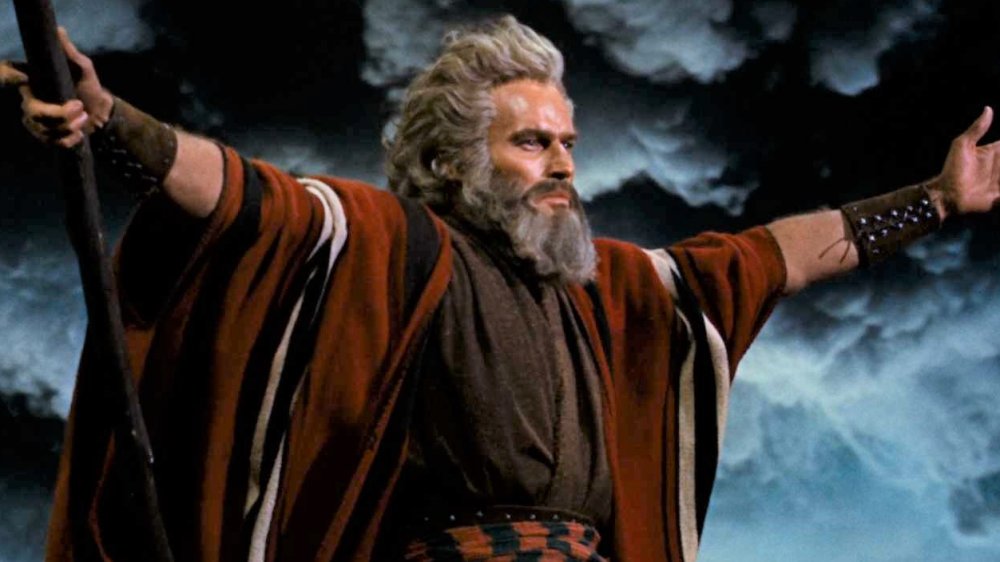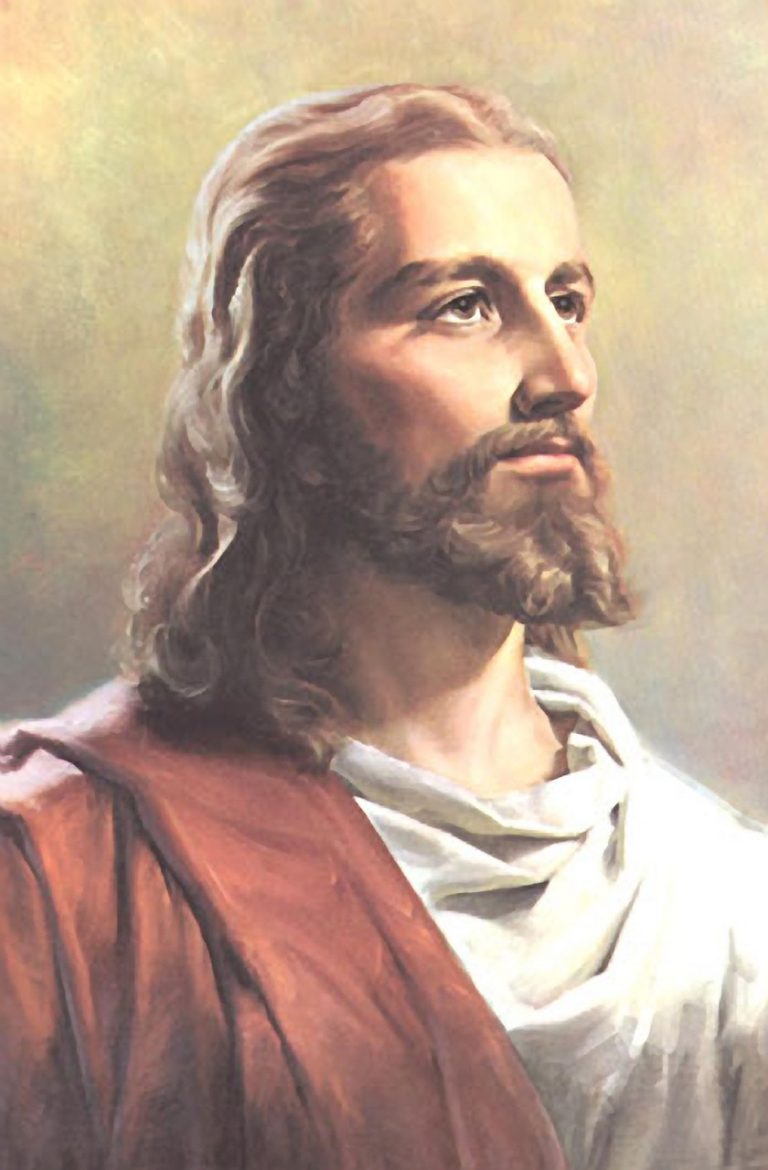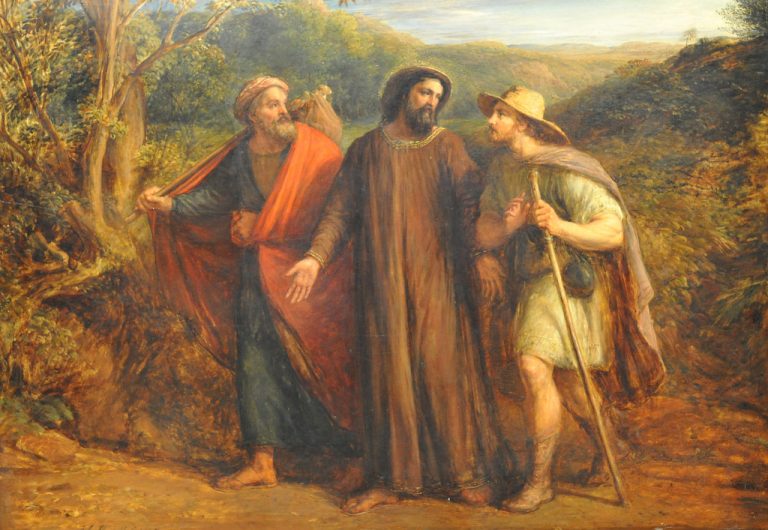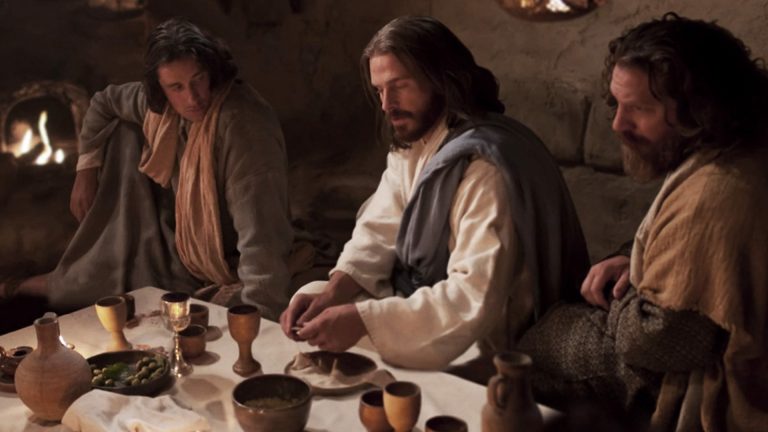Did Moses Go to Heaven? What the Bible Says About His Eternal Destiny
Moses is one of the most influential people in the Bible. He led the Israelites out of slavery in Egypt, got the Ten Commandments from God, and led the Israelites for 40 years in the wilderness.
His life and legacy have had a profound impact on both Judaism and Christianity. However, some may wonder about Moses’ eternal destiny and whether he went to heaven after his death.
So, did Moses go to heaven? Yes, Moses is in heaven, according to the New Testament gospels of Matthew, Mark, and Luke. In the account of the Transfiguration, Moses appears with Elijah and Jesus in glory, which indicates his presence in heaven.
Additionally, other Bible verses point to Moses’ faith and obedience to God, which qualifies him for eternal life in heaven.
In this blog post, we will explore the biblical evidence for Moses’ presence in heaven and his legacy that continues to inspire believers today.

The Transfiguration: How the Gospels Confirm That Moses Is in Heaven
One of the most significant events in the New Testament that confirms Moses’ eternal destiny is the Transfiguration. This event is recorded in the gospels of Matthew, Mark, and Luke and involves Jesus appearing in glory alongside Moses and Elijah.
The scene is set on a mountain where Jesus took Peter, James, and John. Suddenly, Jesus’ appearance changed, and His face shone like the sun, and His clothes became as white as light. Then, Moses and Elijah appeared and began talking with Jesus.
This event reveals several important things. First, it confirms Jesus’ identity as the Son of God, as His glory and power are displayed for all to see. Second, it shows that Jesus is the fulfillment of the law and the prophets, as Moses and Elijah represent the law and the prophets, respectively.
But what is particularly relevant to our question is Moses’ presence at the Transfiguration. This event shows that Moses was in heaven and had anticipated Jesus’ death and resurrection. Moses’ presence also confirms that he is not only remembered on earth but also celebrated in heaven.
The Dispute Over Moses’ Body: How Jude 9 Sheds Light on His Death
Another passage that sheds light on Moses’ story is Jude 9, a verse that is often difficult to understand. The verse reads, “But even the archangel Michael, when he was disputing with the devil about the body of Moses, did not himself dare to condemn him for slander but said, ‘The Lord rebuke you!'”
At first glance, this verse seems to suggest that there was some kind of dispute over Moses’ body between an angel and Satan. However, the context and purpose of Jude’s letter provide some clues to help us understand what is going on.
Jude is writing to encourage believers to contend for the faith and defend it against false teachers who have infiltrated the church. He uses several examples from Jewish history, including Moses, to illustrate his points. In this case, Jude is likely referencing a tradition or story that was well-known to his readers, but not to us.
One interpretation of this verse is that Satan wanted to use Moses’ body as a way to discredit him or to lead Israel astray. However, God protected Moses’ body from Satan’s interference, and even the archangel Michael dared not rebuke him directly but instead relied on the Lord’s authority.
While this interpretation may not be definitive, it does suggest that God honors Moses and protects him even after his death. And if God protected Moses’ body, it is reasonable to assume that He also welcomed Moses’ soul into heaven.
The Sin That Kept Moses Out of the Promised Land: How Numbers 20 Explains His Mistake
One of the most tragic moments in Moses’ life was his inability to enter the Promised Land because of a mistake he made in the wilderness of Zin. According to Numbers 20:2-13, the Israelites complained to Moses and Aaron about the lack of water and accused them of bringing them out of Egypt to die in the wilderness.
In response, God instructed Moses to take his staff and speak to the rock, and water would come out of it for the people and their livestock to drink.
However, instead of obeying God’s command, Moses struck the rock twice with his staff and said, “Listen, you rebels, must we bring you water out of this rock?” (Num. 20:10). Although water did come out of the rock, God was displeased with Moses’ actions because he did not honor God as holy before the people (Num. 20:12). As a result, God said to Moses and Aaron, “Because you did not trust in me enough to honor me as holy in the sight of the Israelites, you will not bring this community into the land I give them” (Num. 20:12).
This incident shows how important it is to obey God’s commands and honor him in everything we do. Moses’ mistake was not just a momentary lapse of judgment, but a reflection of his heart’s attitude toward God. By striking the rock instead of speaking to it, Moses acted out of anger and frustration and took credit for the miracle that God would perform. He also failed to trust in God’s provision and deliverance, and instead resorted to his own strength and power.
God’s punishment of Moses was not arbitrary or vindictive, but a just consequence of his sin. Moses was a great leader and servant of God, but he was not infallible or perfect.
He had his weaknesses and limitations, and his sin had consequences not only for himself but for the people he led. However, God’s grace and mercy towards Moses did not end with his death, but continued to manifest in his legacy and influence on Israel’s history and faith.
The Death and Burial of Moses: How Deuteronomy 34 Describes His Final Moments
The book of Deuteronomy concludes with the account of Moses’ death and burial. After leading Israel for forty years, Moses was not allowed to enter the Promised Land because of his disobedience to God’s command (Num. 20:12). Instead, God showed him the land from Mount Nebo and then took him to be with Him (Deut. 34:1-5).
The description of Moses’ death is brief and solemn. Verse 5 says, “So Moses the servant of the Lord died there in the land of Moab, according to the word of the Lord.” This confirms that Moses’ death was not accidental or premature, but rather part of God’s plan for his life.
Verse 6 adds that God Himself buried Moses in an unknown location: “He buried him in a valley in the land of Moab opposite Beth-peor, but no one knows the place of his burial to this day.” This detail has puzzled many readers, as it seems to contradict the Jewish custom of honoring the dead with a proper burial and grave marker.
Some have speculated that God did this to prevent the Israelites from turning Moses’ burial site into a shrine or idol, while others have seen it as a sign of God’s special favor to Moses, who did not need a visible tomb to be remembered.
In any case, the point of Deuteronomy 34 is not to mourn Moses’ passing but to celebrate his legacy. Verses 10-12 summarize his life and impact: “And there has not arisen a prophet since in Israel like Moses, whom the Lord knew face to face, none like him for all the signs and the wonders that the Lord sent him to do in the land of Egypt, to Pharaoh and to all his servants and to all his land, and for all the mighty power and all the great deeds of terror that Moses did in the sight of all Israel.”
Moses was not only a leader and lawgiver but also a friend of God. He talked with God as a man talks with his friend (Ex. 33:11) and saw God’s glory (Ex. 33:18-23). Moses’ face even shone with the reflection of God’s glory after he received the Ten Commandments (Ex. 34:29-35). In many ways, Moses was a unique figure in Israel’s history, and his influence continued long after his death.
The Legacy of Moses: How He Influenced Israel’s History and Faith
Moses’ impact on Israel’s history and faith is hard to overestimate. Here are some of the major achievements and challenges of his life:
| Moses’ Achievements |
|---|
| Delivering Israel from Egypt |
| Receiving the law at Sinai |
| Interceding for Israel’s sins |
| Leading Israel for forty years |
| Challenges Moses Faced |
|---|
| Opposition from Pharaoh |
| Rebellion from Israel |
| Testing from God |
| Personal Mistakes |
Through these experiences, Moses learned to trust in God’s power, wisdom, and mercy. He learned that God was not only a judge but also a redeemer, who could forgive sins and restore relationships. He learned that God’s love and grace were not earned by good behavior but given freely to those who repented and believed.
The Grace of God: How He Saved Moses Despite His Imperfections
Moses, like all humans, was far from perfect. He had his share of flaws and failures, as evidenced by his impulsive temper, his doubts and fears, and his disobedience to God’s commands. Yet, despite his imperfections, God chose Moses to be his servant and leader of Israel and used him to accomplish great things.
Moses’ story is a testament to the grace of God, who saves not because of our works or merit, but because of his unmerited favor through faith. The writer of Hebrews highlights this truth in the “Hall of Faith,” where Moses is listed among the heroes who pleased God with their trust in him. Hebrews 11:23-29 says:
“By faith, Moses, when he was born, was hidden for three months by his parents because they saw he was a beautiful child; and they were not afraid of the king’s edict. By faith, Moses, when he had grown up, refused to be called the son of Pharaoh’s daughter, choosing rather endure ill-treatment with the people of God than to enjoy the passing pleasures of sin; considering the reproach of Christ greater riches than the treasures of Egypt; for he was looking to the reward. By faith, he left Egypt, not fearing the wrath of the king; for he endured, as seeing Him who is unseen. By faith, he kept the Passover and the sprinkling of the blood, so that he who destroyed the firstborn would not touch them. By faith, they passed through the Red Sea as though they were passing through dry land; and the Egyptians, when they attempted it, were drowned.”
This passage shows that Moses’ faith was not based on his own strength or righteousness, but on his trust in God’s promises and power. He believed that God was faithful to his word and that he would deliver his people from bondage, even if it meant risking his own life and reputation. Moses’ faith was also marked by his willingness to suffer for the sake of God’s people, choosing to identify with them and share their fate rather than enjoy the privileges of his status and upbringing.
Moreover, Moses’ faith was not limited to his own salvation or his own generation. He looked forward to the coming of the Messiah, the promised One who would fulfill God’s plan of salvation for all humanity. Moses’ prophecy in Deuteronomy 18:15-19 says:
“The Lord your God will raise up for you a prophet like me from among your own brothers. You must listen to him. For this is what you asked of the Lord your God at Horeb on the day of the assembly when you said, ‘Let us not hear the voice of the Lord our God nor see this great fire anymore, or we will die.’ The Lord said to me: ‘What they say is good. I will raise up for them a prophet like you from among their brothers; I will put my words in his mouth, and he will tell them everything I command him. If anyone does not listen to my words that the prophet speaks in my name, I myself will call him to account.'”
This prophecy, fulfilled in Jesus Christ, shows that Moses was not just a historical figure or a national hero, but a type or foreshadowing of the greater Prophet and Savior who was to come. Like Moses, Jesus was also rejected by his own people, suffered for their sins, and interceded for them before God. Yet, unlike Moses, Jesus was sinless and perfect, and his sacrifice on the cross was sufficient to atone for the sins of all who believe in him.
Conclusion
In conclusion, according to the New Testament gospels of Matthew, Mark, and Luke, Moses is in heaven. This is confirmed by his appearance alongside Jesus and Elijah at the Transfiguration, which highlights his heavenly status and anticipation of Jesus’ death and resurrection. Additionally, the dispute over Moses’ body in Jude 9 sheds light on his death and God’s protection of his body from Satan’s interference.
While Moses had his flaws and failures, he was still a faithful servant of God who accomplished great things for Israel. His legacy includes delivering Israel from Egypt, receiving the law at Sinai, interceding for Israel’s sins, and is revered as their greatest prophet and teacher. He was also a type of foreshadowing of Christ, who fulfilled what he started.
Despite his imperfections, Moses was saved by God’s grace through faith. This same grace is available to anyone who believes in Jesus as their Savior. Heaven is a real place where God dwells with his people, and it is open to anyone who trusts in Jesus as their Lord. It will be a place where we can meet with saints like Moses who have gone before us.
In conclusion, Moses is in heaven, and his life and legacy continue to inspire us to follow God’s will and trust in his grace.

Sangtea Hmar is a passionate leader of the Youth Christian Fellowship at the Electric Vengthlang Presbyterian Church in Aizawl, Mizoram, India. He is the owner of Christiantone.com and is committed to spreading the word of God. He loves to mentor youth and help them grow in their faith.






